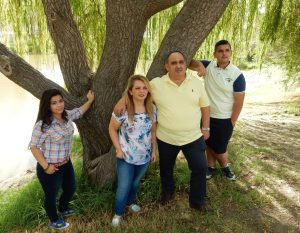Survey finds migrants, refugees embracing the electoral process
Refugees and migrants are overwhelmingly embracing Australia’s electoral process and are keen to vote in this week’s Victorian state election, a new survey has found.
A survey of more than a hundred refugees and migrants who are voting for the first time found that they are engaged in, and trust, Australia’s democratic processes; they are keen to vote and are mostly familiar with the leaders of the major parties.
But many migrants said they felt information about the election was difficult to access.
Commissioned by migrant and refugee agency AMES Australia, the survey canvassed the attitudes of people from 30 countries as more than 100,0000 newly minted Australian citizens will vote in this weeks’ Victorian election.
The survey asked whether it was important to vote in the election. An overwhelming majority (87 per cent) of respondents answered ‘yes’ while just 4 per cent answered in the negative.
Around two-thirds of the respondents said they understood how to vote but just 36 per cent said they fully understood the electoral process, with another 33 per cent saying they had a partial understanding.
‘Cost of living’ was the issue most important to most of the respondents with 43 per cent nominating the hip pocket as a priority followed by employment (11 per cent), ‘education’ and ‘health’ (10 per cent each).
Seventy-one per cent of respondents could identify the leaders of the main parties but only 39 per cent could identify their local candidates.
Asked whether they agreed with compulsory voting, 56 per cent said they did while 37 per cent did not and 7 per cent were unsure.
 An overwhelming 85 per cent of migrants and refugees surveyed said they had trust in Australia’s electoral process with just 6 per cent saying they did not. But only 41 per cent of respondents said there was enough accessible information about the election, while 43 per cent said there was not.
An overwhelming 85 per cent of migrants and refugees surveyed said they had trust in Australia’s electoral process with just 6 per cent saying they did not. But only 41 per cent of respondents said there was enough accessible information about the election, while 43 per cent said there was not.
However, forty-six per cent of people surveyed said that they felt the major parties were communicating with them effectively, 33 per cent said they felt messages were partly getting through and 21 per cent felt they were not being talked to.
A majority (78 per cent) said they were considering voting for one of the major parties while just 16 per cent said they would consider voting for a minor party.
Most of the respondents (61 per cent) said they were mostly getting information on the election from mainstream Australian media, 24 per cent said they were using social media and just 4 per cent said it was from overseas-based media.
Among the new citizens voting for the first time in a state election are Osama Butti and his wife, who with his wife escaped ISIS terror attacks on the streets of Baghdad. They were the first of the extra 12,000 refugees the then Australian Prime Minister Tony Abbott announced Australia would accept in 2014.
“When we came to Australia I felt like we had won the lottery and getting our citizenships and being able to vote feels like we have won the lottery a second time,” Mr Butti said.
“Here in Australia you can feel democracy at work. We are free to choose whoever we want. You can see the programs and plans of each of the parties and candidates and make your choice.
“In Iraq each time you would see the same names and the same candidates, so there was really no choice.
“Becoming citizens was really important for my wife and me. We now feel like we belong somewhere and we can move on with our lives.
“On election day we will cast our votes like other Australians. This is a very good thing and a new experience for us. It will be a privilege and it marks our good luck in becoming a part of this wonderful country,” Mr Butti said.
CEO of migrant and refugee settlement agency AMES Australia Cath Scarth said overwhelmingly, refugees and migrants relished the chance to vote and play a part in the political process.
“Refugees and migrants see the right to vote as a validation of their places in Australian society and it gives them a sense of belonging,” Ms Scarth said.
“Many, especially refugees, have come from places where they don’t have a vote or the act of voting can be extremely dangerous. So, we find most new citizens relish the opportunity to take part in the political process and take it very seriously,” she said.
Ms Scarth said part of AMES Australia’s mission was to help orientate newly arrived refugees and migrants to Australian society and part of that work was to help them understand the electoral process.
“Australia’s preferential voting system, particularly, can be confusing. So we work with the Australian Electoral Commission to help newly arrived citizens to understand how the system works and also the mechanics of actually voting. We also stress that voting in Australia is compulsory and that it is a safe and normal thing to do,” Ms Scarth said.












